第22章 CHAPTER V(3)
"His heart was here. And what he did! I was to have been one of his /freres armes/, but my health prevented, and afterwards the association was dissolved."
The sad expression returned to his face.
"There are many temptations in such a land and climate as this," he said. "And men are weak. But there are still the White Fathers whom he founded. Glorious men. They carry the Cross into the wildest places of the world. The most fanatical Arabs respect the White Marabouts."
"You wish you were with them?"
"Yes, Madame. But my health only permits me to be a humble parish priest here. Not all who desire to enter the most severe life can do so. If it were otherwise I should long since have been a monk. The Cardinal himself showed me that my duty lay in other paths."
He pointed out to Domini one or two things in the church which he admired and thought worthy; the carving of the altar rail into grapes, ears of corn, crosses, anchors; the white embroidered muslin that draped the tabernacle; the statue of a bishop in a red and gold mitre holding a staff and Bible, and another statue representing a saint with a languid and consumptive expression stretching out a Bible, on the leaves of which a tiny, smiling child was walking.
As they were about to leave the church he made Domini pause in front of a painting of Saint Bruno dressed in a white monkish robe, beneath which was written in gilt letters:
"Saint Bruno ordonne a ses disciples De renoncer aux biens terrestres Pour acquerir les biens celestes."
The disciples stood around the saint in grotesque attitudes of pious attention.
"That, I think, is very beautiful," he said. "Who could look at it without feeling that the greatest act of man is renunciation?"
His dark eyes flamed. Just then a faint soprano bark came to them from outside the church door, a very discreet and even humble, but at the same time anxious, bark. The priest's face changed. The almost passionate asceticism of it was replaced by a soft and gentle look.
"Bous-Bous wants me," he said, and he opened the door for Domini to pass out.
A small white and yellow dog, very clean and well brushed, was sitting on the step in an attentive attitude. Directly the priest appeared it began to wag its short tail violently and to run round his feet, curving its body into semi-circles. He bent down and patted it.
"My little companion, Madame," he said. "He was not with me yesterday, as he was being washed."
Then he took off his hat and walked towards his house, accompanied by Bous-Bous, who had suddenly assumed an air of conscious majesty, as of one born to preside over the fate of an important personage.
Domini stood for a moment under the palm trees looking after them.
There was a steady shining in her eyes.
"Madame is a Catholic too?" asked Batouch, staring steadily at her.
Domini nodded. She did not want to discuss religion with an Arab minor poet just then.
"Take me to the market," she said, mindful of her secret resolve to get rid of her companion as soon as possible.
They set out across the gardens.
It was a celestial day. All the clear, untempered light of the world seemed to have made its home in Beni-Mora. Yet the heat was not excessive, for the glorious strength of the sun was robbed of its terror, its possible brutality, by the bright and feathery dryness and coolness of the airs. She stepped out briskly. Her body seemed suddenly to become years younger, full of elasticity and radiant strength.
"Madame is very strong. Madame walks like a Bedouin."
Batouch's voice sounded seriously astonished, and Domini burst out laughing.
"In England there are many strong women. But I shall grow stronger here. I shall become a real Arab. This air gives me life."
They were just reaching the road when there was a clatter of hoofs, and a Spahi, mounted on a slim white horse, galloped past at a tremendous pace, holding his reins high above the red peak of his saddle and staring up at the sun. Domini looked after him with critical admiration.
"You've got some good horses here," she said when the Spahi had disappeared.
"Madame knows how to ride?"
She laughed again.
"I've ridden ever since I was a child."
"You can buy a fine horse here for sixteen pounds," remarked Batouch, using the pronoun "tu," as is the custom of the Arabs.
"Find me a good horse, a horse with spirit, and I'll buy him," Domini said. "I want to go far out in the desert, far away from everything."
"You must not go alone."
"Why not?"
"There are bandits in the desert."
"I'll take my revolver," Domini said carelessly. "But I will go alone."
They were in sight of the market now, and the hum of voices came to them, with nasal cries, the whine of praying beggars, and the fierce braying of donkeys. At the end of the small street in which they were Domini saw a wide open space, in the centre of which stood a quantity of pillars supporting a peaked roof. Round the sides of the square were arcades swarming with Arabs, and under the central roof a mob of figures came and went, as flies go and come on a piece of meat flung out into a sunny place.
"What a quantity of people! Do they all live in Beni-Mora?" she asked.
"No, they come from all parts of the desert to sell and to buy. But most of those who sell are Mozabites."